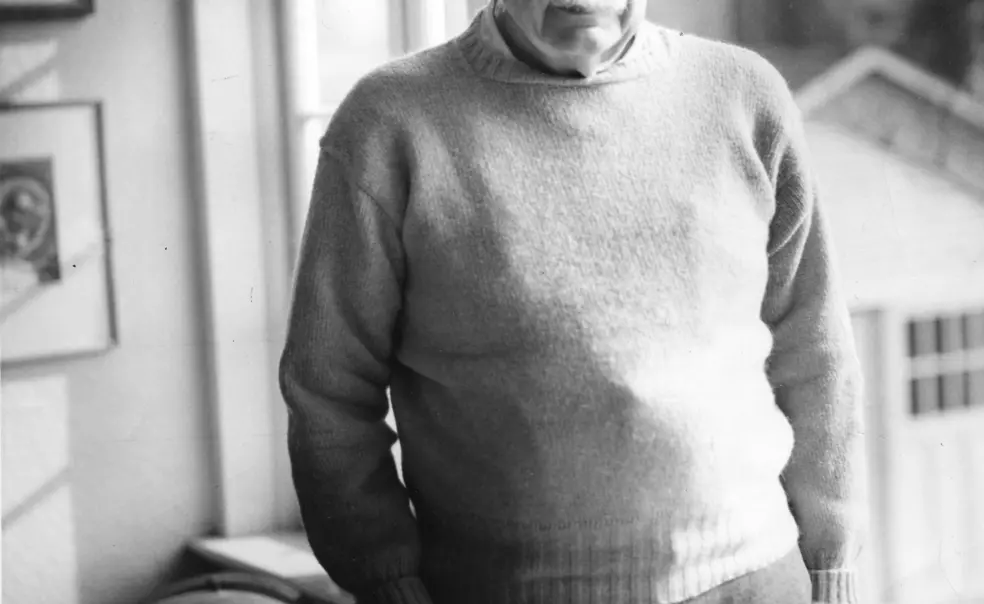Dr. Albert Einstein at Princeton
It may be difficult for someone not living in Princeton to appreciate how much the personality of Albert Einstein pervaded the University community. Although he was not on the faculty of the University, he seemed a part of it—perhaps because he added so much to the prestige of the University through erroneous identification with it, or because many members of the faculty had known him and had worked with him, or because the influence of his mind and character pervaded the University as it had the whole world of scholarship.

Last week as the town crawled with newsmen and the Princeton dateline flashed around the world, there was but one topic of conversation, from the Institute for Advanced Study to the market place. The Daily Princetonian devoted an entire issue to Albert Einstein and began a series of articles by members of the faculty on the influence of his work in such fields as chemistry and philosophy. The undergraduate newspaper’s attention to his passing is a reflection of the deep affection in which he was held in the community, as difficult to explain rationally as the popularity of this secluded scientist throughout the world.
Among the many public figures who have commented on the death of Dr. Einstein, two are of particular interest to Princetonians. Henry DeWorld Smyth ’18, chairman of the Board of Scientific and Engineering Research at Princeton, former chairman of the Department of Physics and former member of the Atomic Energy Commission, spoke as follows:
“Few men have made such great contributions to knowledge as Albert Einstein. His work on the photo-electric effect and on the theory of relativity pervade the whole of modern physics. The breadth and penetration of his views have broadened and deepened the basic philosophy of science. Physics at Princeton has been immeasurably benefited by his presence at the Institute for Advanced Study. The informality and simplicity which characterized his relations with lesser scientists of all ages endeared him to his colleagues. Though his principal concern was with the frontiers of abstract theoretical physics, he always showed a lively enthusiasm for any scientific activity. He will be sorely missed but for years to come he will continue to be a source of inspiration to those who use their minds and imaginations in the pursuit of science.”
The second statement came from President Dodds:
“The contributions which Dr. Einstein made to man’s understanding of nature are beyond assessment in our day. Only future generations will be competent to grasp their full significance.
“He combined broad human sympathy and a deep appreciation of the arts with his scientific genius. As a member of the Institute for Advanced Study from its earliest days when it was housed on the University campus, Dr. Einstein has been a valued member of this community. We are deeply saddened at his passing.”
This was originally published in the April 29, 1955 issue of PAW.












No responses yet